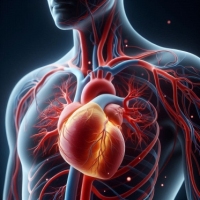Malaria is a life-threatening disease spread by infected mosquitoes. It continues
to be a major health problem in many regions, especially in Nigeria. At
Wellthify, we aim to educate our communities about how malaria can be prevented,
treated, and ultimately, eliminated.
What Causes Malaria?
Malaria is caused by parasites known as Plasmodium, which are passed to humans
through the bites of female Anopheles mosquitoes. These mosquitoes become
infected when they bite someone who already has the malaria parasite. Once they
bite another person, they transmit the parasite into their bloodstream.
There are five types of Plasmodium that cause malaria in humans:
- Plasmodium falciparum: The
most dangerous and most common in Africa, often leading to severe illness
and death.
- Plasmodium vivax: Less deadly,
but it can stay dormant in the liver and cause relapses.
- Plasmodium ovale: Similar to
*P. vivax*, causing mild but recurring illness.
- Plasmodium malariae: Can cause
chronic malaria, which may last for years without treatment.
- Plasmodium knowlesi: Rare, but can cause serious illness in
Southeast Asia, transmitted from monkeys to humans.
Symptoms of Malaria
Malaria symptoms usually start 10 to 15 days after being bitten by an infected
mosquito. Common symptoms include:
- High Fever: Sudden and
recurring fever.
- Chills and Sweating: Feeling
very cold followed by sweating.
- Headache: Persistent and
severe headaches.
- Muscle and Joint Pain: General
body aches and weakness.
- Nausea and Vomiting: An upset
stomach and vomiting.
- Fatigue: Feeling extremely weak and tired due to anemia
(loss of red blood cells).
How to Prevent
Malaria
Prevention is key to protecting yourself and your family from malaria. Here are
some important steps you can take:
- Sleep Under Mosquito Nets:
Always sleep under insecticide-treated nets to avoid being bitten at night.
- Use Mosquito Repellents: Apply
mosquito repellent on exposed skin and clothes to keep mosquitoes away.
- Indoor Residual Spraying: Have
your home sprayed with mosquito-killing chemicals, especially before the
rainy season.
- Environmental Management:
Clear stagnant water around your home, where mosquitoes breed.
- Take Antimalarial Medication: If you live in or travel to a
high-risk area, consult your doctor about taking preventive medication.
“Prevention and prompt treatment can significantly reduce malaria-related
deaths and illnesses.”
Malaria Treatment
If diagnosed early, malaria is treatable with antimalarial drugs. Common
treatments include:
- Artemisinin-based Combination Therapies
(ACTs): These are the most effective treatments for malaria
caused by *Plasmodium falciparum*.
- Chloroquine: Effective against
Plasmodium vivax and Plasmodium malariae, but not recommended where there is
resistance.
- Primaquine: Used to prevent relapse in cases of Plasmodium
vivax and Plasmodium ovale infections.
Conclusion
Malaria remains a significant health challenge in many parts of Nigeria, but it
can be controlled and even eliminated with the right efforts. Wellthify is
committed to spreading awareness, supporting prevention programs, and advocating
for timely access to treatment for those affected. Together, we can reduce
malaria's burden and save lives across our communities.


Leave Comments